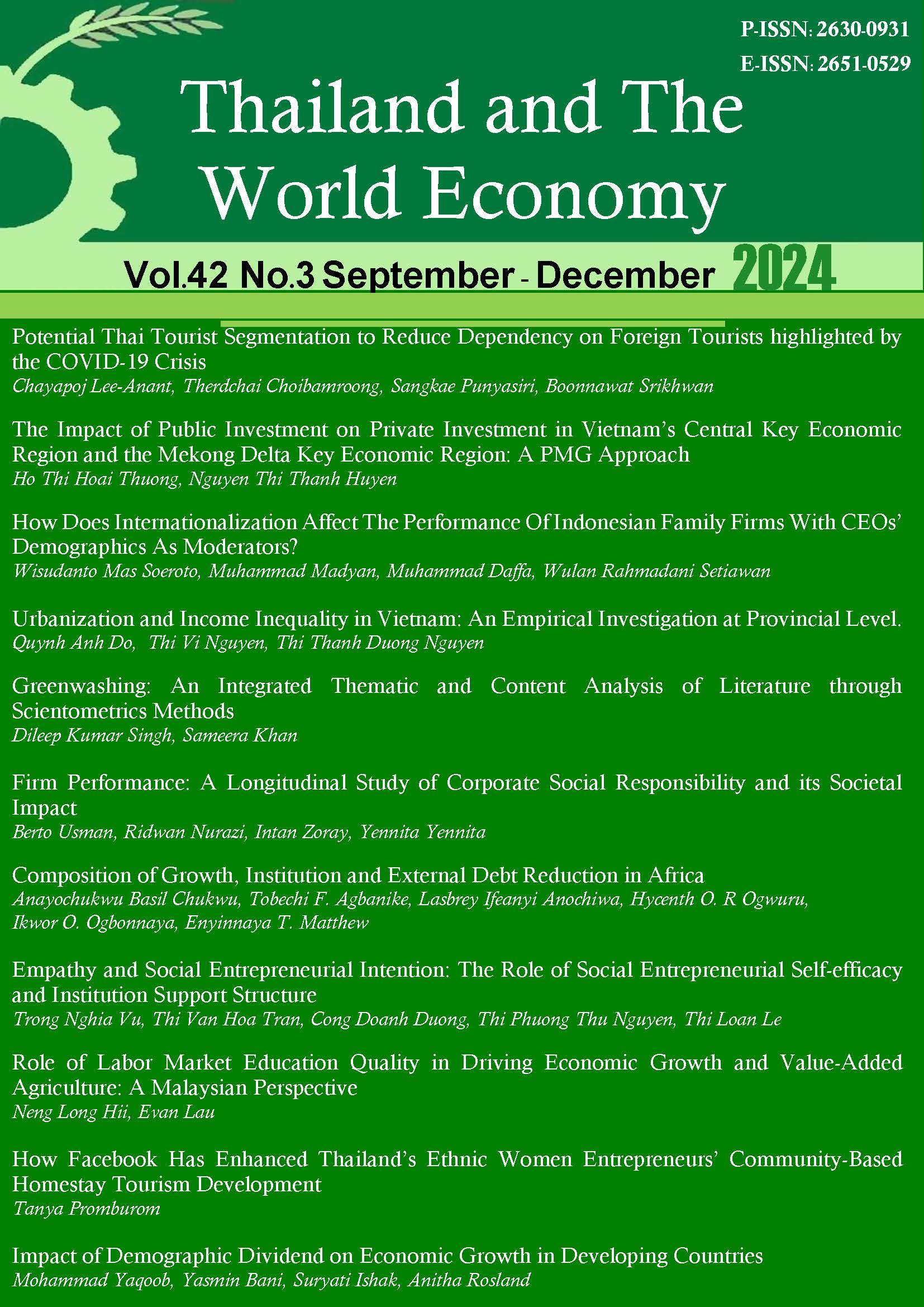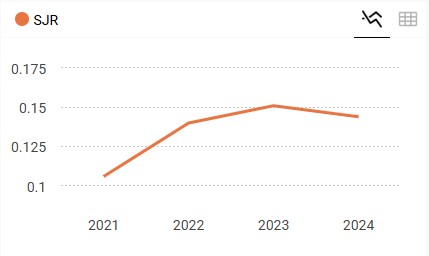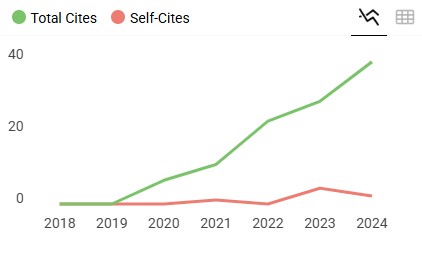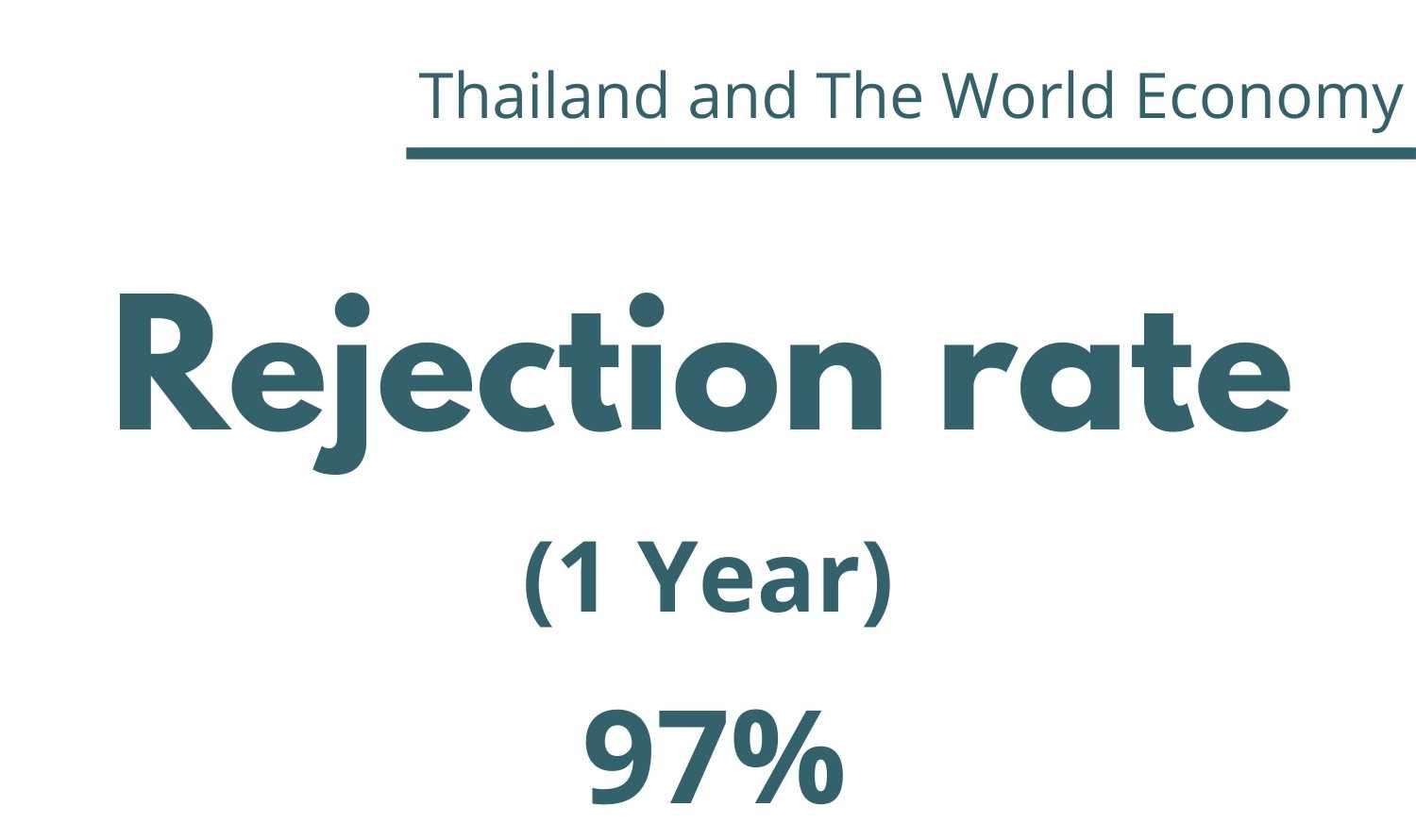Greenwashing: An Integrated Thematic and Content Analysis of Literature through Scientometrics Methods
Keywords:
Greenwashing, thematic analysis, content analysis, bibliometric methods, literature review, sustainability communicationAbstract
Academic studies and business practices are paying more and more attention to the topic of "greenwashing," or the organizations' false marketing of their environmental sustainability initiatives. To obtain insight into the current state of knowledge, this article offers a thorough investigation that combines topic and content analysis of the greenwashing literature. The study begins with bibliometric analysis to examine patterns of publication, collaboration networks, and citation trends and later uses scientometrics to explore collaboration networks. Then thematic analysis is employed to identify key themes and concepts prevalent in the literature. In the third stage, content analysis has been done by examining five clusters formed by thematic analysis using SciMAT. The integrated approach of thematic and content analysis provides a comprehensive overview of the current state of knowledge on greenwashing, identifying research gaps and emerging trends. It sheds light on the most influential authors, journals, and institutions in the field and examines the evolution of research over time. The findings of this study contribute to the understanding of greenwashing by offering a structured and systematic analysis of the existing literature. The insights gained can guide future research directions, inform policymakers and practitioners, and help develop effective strategies to mitigate greenwashing practices.
References
Acedo, F. J., & Casillas, J. C. (2005). Current paradigms in the international management field: An author co-citation analysis. International Business Review, 14(5), 619–639.
Ates, S. (2023). The credibility of corporate social responsibility reports: Evidence from the energy sector in emerging markets. Social Responsibility Journal, 19(4), 756–773.
Berrone, P., Fosfuri, A., & Gelabert, L. (2017). Does greenwashing pay off? Understanding the relationship between environmental actions and environmental legitimacy. Journal of Business Ethics, 144(2), 363–379.
Bigger, P., & Neimark, B. D. (2017). Weaponizing nature: The geopolitical ecology of the US Navy’s biofuel program. Political Geography, 60, 13–22.
Bryant, A., Griffin, J. J., & Perry, V. G. (2020). Mitigating climate change: A role for regulations and risk-taking. Business Strategy and the Environment, 29(2), 605–618.
Chitaka, T. Y. (2021). Environmentalism or greenwashing? Responses of South African value chain actors to plastic straw marine pollution. South African Journal of Science, 117(7–8).
Cobo, M. J., Lõpez-Herrera, A. G., Herrera-Viedma, E., & Herrera, F. (2012). SciMAT: A new science mapping analysis software tool. Journal of the American Society for Information Science and Technology, 63(8), 1609–1630.
Comerio, N., & Strozzi, F. (2019). Tourism and its economic impact: A literature review using bibliometric tools. Tourism Economics, 25(1), 109–131.
Courtat, M., Joyce, P. J., Sim, S., Sadhukhan, J., & Murphy, R. (2023). Towards credible, evidence-based environmental rating ecolabels for consumer products: A proposed framework. Journal of Environmental Management, 336.
De-La-Cruz-Diaz, M., Alvarez-Risco, A., Jaramillo-Arévalo, M., de las Mercedes Anderson-Seminario, M., & Del-Aguila-Arcentales, S. (2023). Green marketing and entrepreneurship. Environmental Footprints and Eco-Design of Products and Processes, pp. 211–224. Universidad de Lima, Lima, Peru: Springer. https://doi.org/10.1007/978-981-19-8895-0_9
De-La-Cruz-Diaz, M., Alvarez-Risco, A., Jaramillo-Arévalo, M., de las Mercedes Anderson-Seminario, M., & Del-Aguila-Arcentales, S. (2023). Green marketing and entrepreneurship. In Initial. Last name, Initial. Last name & Initial. Last name (Eds.), Environmental footprints and eco-design of products and processes (pp. 211–224). Universidad de Lima, Lima, Peru: Springer.
de Freitas Netto, S. V., Sobral, M. F. F., Ribeiro, A. R. B., & Soares, G. R. da L. (2020). Concepts and forms of greenwashing: A systematic review. Environmental Sciences Europe, 32(1).
de Sio, S., Zamagni, A., Casu, G., & Gremigni, P. (2022). Green trust as a mediator in the relationship between green advertising skepticism, environmental knowledge, and intention to buy green food. International Journal of Environmental Research and Public Health, 19(24).
de Vries, G., Terwel, B. W., Ellemers, N., & Daamen, D. D. L. (2015). Sustainability or profitability? How communicated motives for environmental policy affect public perceptions of corporate greenwashing. Corporate Social Responsibility and Environmental Management, 22(3), 142–154.
DeFries, R. S., Fanzo, J., Mondal, P., Remans, R., & Wood, S. A. (2017). Is voluntary certification of tropical agricultural commodities achieving sustainability goals for small-scale producers? A review of the evidence. Environmental Research Letters, 12(3).
Delmas, M. A., & Burbano, V. C. (2011). The drivers of greenwashing. California Management Review, 54(1), 64–87.
Eduardsen, J., & Marinova, S. (2020). Internationalisation and risk: Literature review, integrative framework and research agenda. International Business Review, 29(3), 101688.
Font, X., Walmsley, A., Cogotti, S., McCombes, L., & Häusler, N. (2012). Corporate social responsibility: The disclosure-performance gap. Tourism Management, 33(6), 1544–1553.
García, C. J., Herrero, B., Miralles-Quirós, J. L., & del Mar Mirallles-Quirós, M. (2023). Exploring the determinants of corporate green bond issuance and its environmental implication: The role of corporate board. Technological Forecasting and Social Change, 189.
Garland, J., Huising, R., & Struben, J. (2013). “What if technology worked in harmony with nature?” Imagining climate change through Prius advertisements. Organization, 20(5), 679–704.
George, A., & Nair, A. S. (2022). Reflections on green purchase behaviour in the era of COVID-19: A Conceptual Framework. Vision, 0(0).
Goel, V., Luthra, P., Kapur, G. S., & Ramakumar, S. S. V. (2021). Biodegradable/bio-plastics: Myths and realities. Journal of Polymers and the Environment, 29(10), 3079–3104.
Guo, R., Tao, L., & Gao, P. (2014). The research on greenwashing brands’ rebuilding strategies and mechanism of brand trust after biochemical and other pollutions. BioTechnology: An Indian Journal, 10(9), 3270–3279. Retrieved from https://www.scopus.com/inward/record.uri?eid=2-s2.0-84922815636&partnerID=40&md5=0c2a50c827663c66d469bebeea97c581
Guo, R., Tao, L., Yan, L., & Gao, P. (2014). The effect path of greenwashing brand trust in chinese microbiological industry from decoupling view. BioTechnology: An Indian Journal, 10(7), 1827–1831. Retrieved from https://www.scopus.com/
inward/record.uri?eid=2-s2.0-84924732523&partnerID=40&md5=3f1e2cd2446
af31981460cfffabdd
Johnsson, F., Karlsson, I., Rootzén, J., Ahlbäck, A., & Gustavsson, M. (2020). The framing of a sustainable development goals assessment in decarbonizing the construction industry – Avoiding “Greenwashing”. Renewable and Sustainable Energy Reviews, 131.
Kim, W., Ko, S., Oh, M., Choi, I.-J., & Shin, J. (2019). Is an incentive policy for energy efficient products effective for air purifiers? The case of South Korea. Energies, 12(9).
Ktisti, E., Hatzithomas, L., & Boutsouki, C. (2022). Green advertising on social media: A systematic literature review. Sustainability (Switzerland), 14(21).
Li, J., Sanderson, M., Willett, P., Norris, M., & Oppenheim, C. (2010). Ranking of library and information science researchers: Comparison of data sources for correlating citation data, and expert judgments. Journal of Informetrics, 4(4), 554–563.
Lu, X., Sheng, T., Zhou, X., Shen, C., & Fang, B. (2022). How does young consumers’ greenwashing perception impact their green purchase intention in the fast fashion industry? An analysis from the perspective of perceived risk theory. Sustainability (Switzerland), 14(20).
Mahoney, L. S., Thorne, L., Cecil, L., & LaGore, W. (2013). A research note on standalone corporate social responsibility reports: Signaling or greenwashing?. Critical Perspectives on Accounting, 24(4–5), 350–359.
Marcatajo, G. (2023). Green claims, green washing and consumer protection in the European Union. Journal of Financial Crime, 30(1), 143–153.
Marquis, C., Toffel, M. W., & Zhou, Y. (2016). Scrutiny, norms, and selective disclosure: A global study of greenwashing. Organization Science, 27(2), 483–504.
Mateo-Márquez, A. J., González-González, J. M., & Zamora-Ramírez, C. (2022). An international empirical study of greenwashing and voluntary carbon disclosure. Journal of Cleaner Production, 363.
Mehta, N., Cunningham, E., Roy, D., Cathcart, A., Dempster, M., Berry, E., & Smyth, B. M. (2021). Exploring perceptions of environmental professionals, plastic processors, students and consumers of bio-based plastics: Informing the development of the sector. Sustainable Production and Consumption, 26, 574–587.
Molloy, S., Varkey, P., & Walker, T. R. (2022). Opportunities for single-use plastic reduction in the food service sector during COVID-19. Sustainable Production and Consumption, 30, 1082–1094
Montero-Navarro, A., González-Torres, T., Rodríguez-Sánchez, J.-L., & Gallego-Losada, R. (2021). A bibliometric analysis of greenwashing research: A closer look at agriculture, food industry and food retail. British Food Journal, 123(13), 547–560.
Morales-Rios, F., Alvarez-Risco, A., Esquerre-Botton, S., Castillo-Benancio, S., de las Mercedes Anderson-Seminario, M., Del-Aguila-Arcentales, S., & Julca-Zamalloa, F. (2023). Redefining entrepreneurship: The incorporation of CSR and positive corporate image as business strategies in green entrepreneurialism. In S. S. Muthu (Ed.), Environmental footprints and eco-design of products and processes (pp. 147–161). Universidad de Lima, Lima, Peru: Springer.
Nandakumar, A., Chuah, J.-A., & Sudesh, K. (2021). Bioplastics: A boon or bane?. Renewable and Sustainable Energy Reviews, 147.
Nazareth, M. C., Marques, M. R. C., Pinheiro, L. M., & Castro, Í. B. (2022). Key issues for bio-based, biodegradable and compostable plastics governance. Journal of Environmental Management, 322.
Nazareth, M., Marques, M. R. C., Leite, M. C. A., & Castro, Í. B. (2019). Commercial plastics claiming biodegradable status: Is this also accurate for marine environments?. Journal of Hazardous Materials, 366, 714–722.
Niñerola, A., Sánchez-Rebull, M. V., & Hernández-Lara, A. B. (2021). Mapping the field: Relational study on Six Sigma. Total Quality Management and Business Excellence, 32 (11-12), 1182–1200.
Opferkuch, K., Walker, A. M., Roos Lindgreen, E., Caeiro, S., Salomone, R., & Ramos, T. B. (2023). Towards a framework for corporate disclosure of circular economy: Company perspectives and recommendations. Corporate Social Responsibility and Environmental Management. 30 (5), 2457-2474.
Philp, J. C., Bartsev, A., Ritchie, R. J., Baucher, M.-A., & Guy, K. (2013). Bioplastics science from a policy vantage point. New Biotechnology, 30(6), 635–646.
Pope, S., & Wæraas, A. (2016). CSR-washing is rare: A conceptual framework, literature review, and critique. Journal of Business Ethics, 137(1), 173–193.
Rahman, I., Park, J., & Chi, C. G.-Q. (2015). Consequences of “greenwashing”: Consumers’ reactions to hotels’ green initiatives. International Journal of Contemporary Hospitality Management, 27(6), 1054–1081.
Rausch, T. M., & Kopplin, C. S. (2021). Bridge the gap: Consumers’ purchase intention and behavior regarding sustainable clothing. Journal of Cleaner Production, 278.
Satola, D., Balouktsi, M., Lützkendorf, T., Wiberg, A. H., & Gustavsen, A. (2021). How to define (net) zero greenhouse gas emissions buildings: The results of an international survey as part of IEA EBC annex 72. Building and Environment, 192.
Seele, P., & Gatti, L. (2017). Greenwashing revisited: In search of a typology and accusation-based definition incorporating legitimacy strategies. Business Strategy and the Environment, 26(2), 239–252.
Shao, X., Jeong, E., Zhang, X., & Jang, S. (2023). Green marketing versus demarketing: The impact of individual characteristics on consumers’ evaluations of green messages. Journal of Hospitality and Tourism Research.
Silva, P. C. D. ., Teixeira, R. L. P. ., & Brito, M. L. de A. . (2022). Green Marketing in Cosmetics Companies Advertising Campaigns: an Analytical and Linguistic Approach to the Metaphorization of Green. Revista De Gestão Social E Ambiental, 16(2)
Sirieix, L., Delanchy, M., Remaud, H., Zepeda, L., & Gurviez, P. (2013). Consumers’ perceptions of individual and combined sustainable food labels: A UK pilot investigation. International Journal of Consumer Studies, 37(2), 143–151.
Steffen, A., & Doppler, S. (2018). Building consumer trust and satisfaction through sustainable business practices with organic supermarkets: The case of Alnatura. In J.Byrom & D. Medway (Eds.), Case studies in food retailing and distribution (pp. 205–228). Department of Consumer Behavior and Market Research, Hochschule Fresenius, Heidelberg, Germany: Elsevier.
Stephenson, E., Doukas, A., & Shaw, K. (2012). “Greenwashing gas: Might a ‘transition fuel’ label legitimize carbon-intensive natural gas development?”. Energy Policy, 46, 452–459.
Szilagyi, A., Cioca, L.-I., Bacali, L., Lakatos, E.-S., & Birgovan, A.-L. (2022). Consumers in the Circular Economy: A path analysis of the underlying factors of purchasing behaviour. International Journal of Environmental Research and Public Health, 19(18).
Taebi, B., & Safari, A. (2017). On effectiveness and legitimacy of ‘shaming’ as a strategy for combatting climate change. Science and Engineering Ethics, 23(5), 1289–1306.
Viera, J. S. C., Marques, M. R. C., Nazareth, M. C., Jimenez, P. C., & Castro, Í. B. (2020). On replacing single-use plastic with so-called biodegradable ones: The case with straws. Environmental Science and Policy, 106, 177–181.
Vikström, H. (2020). Risk or opportunity? The extractive industries’ response to critical metals in renewable energy technologies, 1980-2014. Extractive Industries and Society, 7(1), 20–28.
Wang, Z., Hsieh, T.-S., & Sarkis, J. (2018). CSR performance and the readability of CSR reports: Too good to be true?. Corporate Social Responsibility and Environmental Management, 25(1), 66–79.
Wang, Z., & Sarkis, J. (2017). Corporate social responsibility governance, outcomes, and financial performance. Journal of Cleaner Production, 162, 1607–1616.
Wichianrak, J., Khan, T., Teh, D., & Dellaportas, S. (2023). Critical perspectives of NGOs on voluntary corporate environmental reporting: Thai public listed companies. Sustainability (Switzerland), 15(7).
Zhang, L., Li, D., Cao, C., & Huang, S. (2018). The influence of greenwashing perception on green purchasing intentions: The mediating role of green word-of-mouth and moderating role of green concern. Journal of Cleaner Production, 187, 740–750.
Zhu, J., & Wang, C. (2020). Biodegradable plastics: Green hope or greenwashing?. Marine Pollution Bulletin, 161.
Downloads
Published
How to Cite
Issue
Section
Categories
License
Copyright (c) 2024 Thailand and The World Economy

This work is licensed under a Creative Commons Attribution-NonCommercial-NoDerivatives 4.0 International License.










